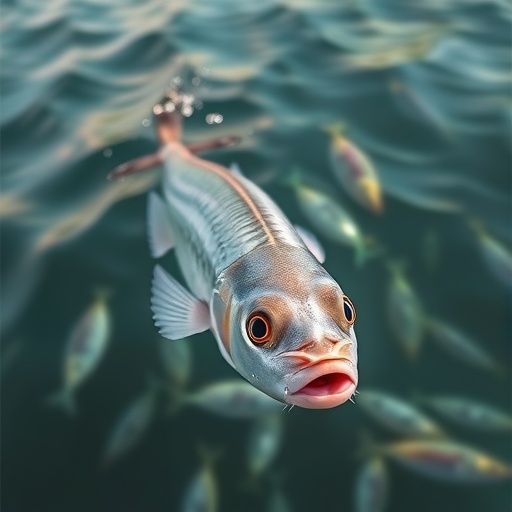Aquatic foods constitute a cornerstone of Malaysia’s food security, nutritional wellbeing, economic development, and the livelihoods of countless coastal and rural communities. Both capture fisheries and aquaculture have historically played indispensable roles in providing these vital resources. However, recent research reveals that the trajectory of Malaysia’s aquatic food sector is undergoing a profound transformation. Capture fisheries, once the principal source of seafood, have reached a plateau, hindered by a combination of overexploitation, habitat degradation, and systemic governance challenges. Meanwhile, the aquaculture sector, particularly farmed fish and seaweed, is emerging as the primary driver of growth, reflecting a notable structural shift in the nation’s aquatic food production systems.
The study in question, published in Frontiers in Sustainable Food Systems, brings together expertise from leading institutions including WorldFish, the Centre for Marine and Coastal Studies, the School of Biological Sciences at Universiti Sains Malaysia, and the University of Tokyo. Employing a comprehensive literature review, the authors meticulously analyze the current state and emerging trends within Malaysia’s fisheries and aquaculture industries, painting a nuanced picture of both the opportunities and risks facing these intertwined sectors.
Analysis indicates that capture fisheries have stagnated due to prolonged overfishing, resulting in the depletion of key fish stocks. Moreover, widespread habitat loss from coastal development and pollution further exacerbates the fragile state of wild fisheries. Governance complications, spanning regulatory bottlenecks and inconsistent enforcement, inhibit effective resource management. Despite wild-caught fish comprising nearly 70% of total fish production as recently as 2022, the volume has plateaued—signaling a sector stretched to its biological and institutional limits.
Conversely, aquaculture is ascending rapidly, now contributing approximately 30% to Malaysia’s total fish production. Within this subsector, the cultivation of seaweed stands out as the most dynamic and burgeoning component, accounting for more than half of farmed output. Seaweed farming offers a particularly compelling narrative: it is a low-cost, low-impact aquaculture practice that aligns well with sustainable blue economy principles. The expansion of this industry segment not only boosts economic prospects but also exemplifies an environmentally compatible pathway for aquatic food production in Malaysia.
Dr. Cristiano Rossignoli, WorldFish’s Research Lead and co-author of the study, highlights the dual nature of the sector’s future: brimming with latent potential yet fraught with critical sustainability challenges. While aquaculture can help fill the rising gap left by stagnant wild fisheries, unlocking this potential necessitates targeted support for small-scale producers. Enabling smallholders to adopt sustainable practices can bolster production, reduce ecological footprints, and enhance the resilience of the broader aquatic food system.
The challenges impeding aquaculture development are multifaceted. Farmers face escalating input costs, constrained access to reliable hatchery stock, and an underdeveloped cold chain infrastructure that limits the value-adding potential within the supply chain. Compounding these operational hardships are complex and often overlapping regulatory frameworks that stifle innovation and expansion. Additionally, environmental vulnerabilities — including climate-related impacts such as temperature fluctuations and extreme weather events — impose further risks on production stability.
Professor Aileen Tan, Director of the Centre for Marine and Coastal Studies and co-author, stresses the urgency of adapting to the sector’s evolving landscape. As wild fish captures stabilize at suboptimal levels, sustainable aquaculture emerges not merely as an alternative but as an imperative. Strengthening support mechanisms for small-scale aquaculture producers will be crucial in fostering a resilient, inclusive, and environmentally responsible aquatic food system capable of meeting Malaysia’s future demands.
Adding complexity to the scenario, Malaysia’s self-sufficiency rate in fish production has declined from 93% in 2019 to just above 90% by 2022. This contraction signals increasing reliance on imports to satiate domestic seafood demand, highlighting vulnerabilities in national food security. It underscores the pressing necessity for policy interventions that enhance domestic production capacity while ensuring ecological sustainability.
The study advocates for sweeping reforms aimed at revitalizing the fisheries and aquaculture sectors. These include expanding hatchery capacities to supply quality seedstock, improving rural infrastructure to facilitate production and market access, and providing comprehensive support tailored to small producers. Investments in research and development are deemed vital to spur technological innovation, enhance competitiveness, and increase sectoral resilience amid global environmental and economic uncertainties.
Malaysia’s aquatic food sector evolution occurs within broader regional and global contexts emphasizing sustainable development and climate adaptation. The country’s blue economy ambitions hinge on balancing growth with conservation, leveraging aquaculture advancements while safeguarding marine ecosystems. Environmental stewardship, efficient resource governance, and community empowerment thus remain intertwined priorities as the sector navigates this pivotal transition.
WorldFish’s significant role in this sectoral evolution cannot be overstated. Marking 25 years of engagement in Malaysia, WorldFish has collaborated extensively with government agencies, academic institutions, and community organizations to foster sustainable aquatic food systems. Since relocating its global headquarters to Penang in 2000, the organization has championed science-driven approaches that integrate environmental sustainability with socio-economic inclusion across Asia’s fisheries and aquaculture sectors.
This new research offers valuable empirical evidence articulating the ongoing structural shifts in Malaysia’s aquatic food production. It underscores that future success depends on overcoming biological, technical, institutional, and economic constraints through coordinated multi-stakeholder interventions. By catalyzing innovation and strengthening smallholder capacities within a robust policy framework, Malaysia can enhance sector resilience and contribute meaningfully to global sustainable seafood supply goals.
As the world confronts escalating food security challenges driven by population growth and environmental change, Malaysia’s experience reflects broader trends in fisheries and aquaculture transitions. The balance between conserving wild fish populations and harnessing aquaculture innovations will remain central to achieving sustainable, equitable, and nutritious aquatic food systems for decades to come.
Subject of Research: Not applicable
Article Title: Overview of the fishery and aquaculture sectors in Malaysia
News Publication Date: 1-Apr-2025
Web References:
Frontiers in Sustainable Food Systems article
Keywords: Fisheries, Sustainability, Aquaculture, Mariculture
Tags: aquatic food security in Malaysiacapture fisheries stagnationcoastal and rural livelihoods in Malaysiaeconomic development through aquacultureemerging trends in fisheriesfarmed fish and seaweed productiongovernance challenges in fisheriesMalaysia aquaculture industry growthnutritional wellbeing from aquatic foodsoverfishing and habitat degradationstructural shift in seafood productionsustainable food systems research





